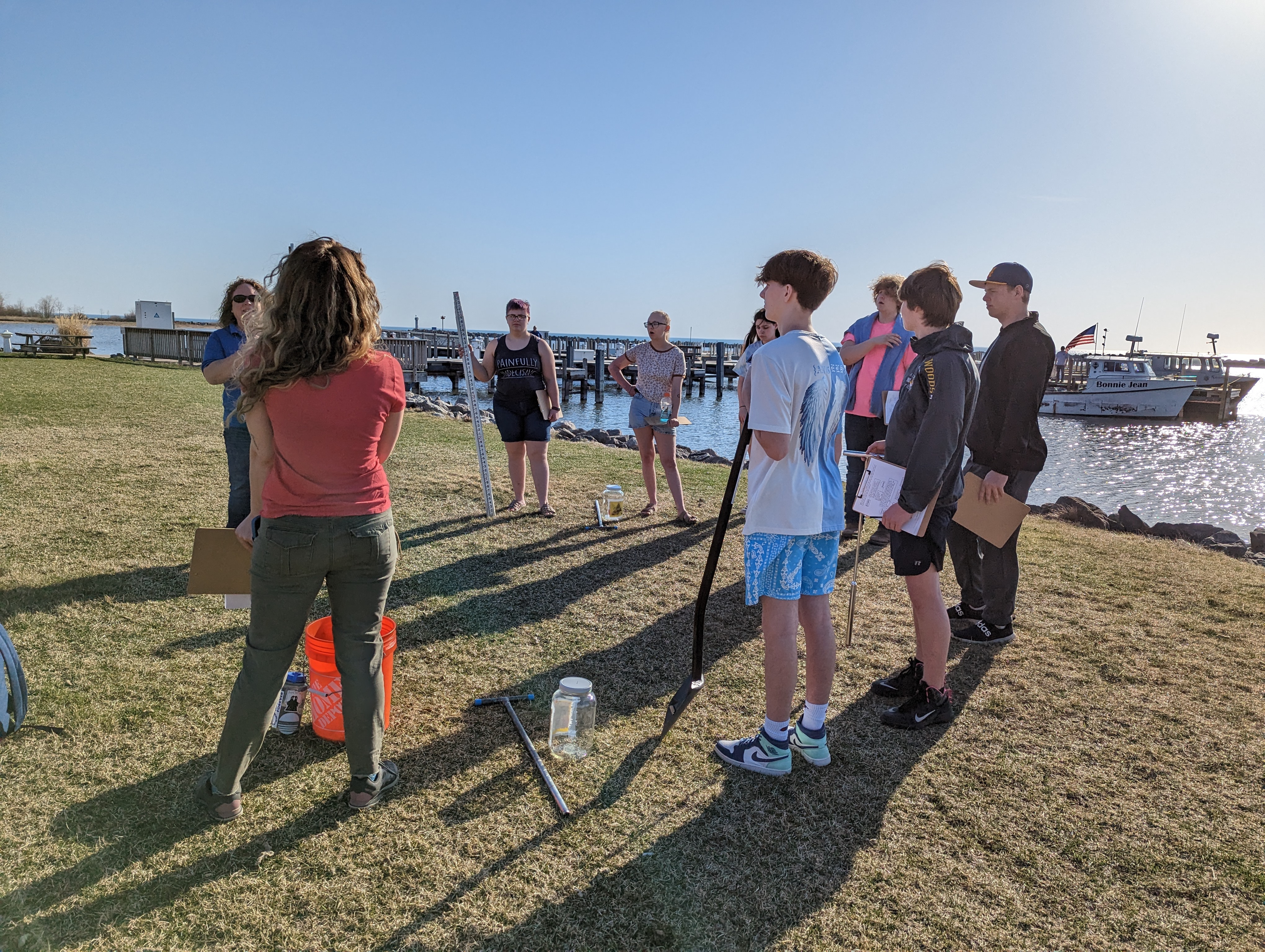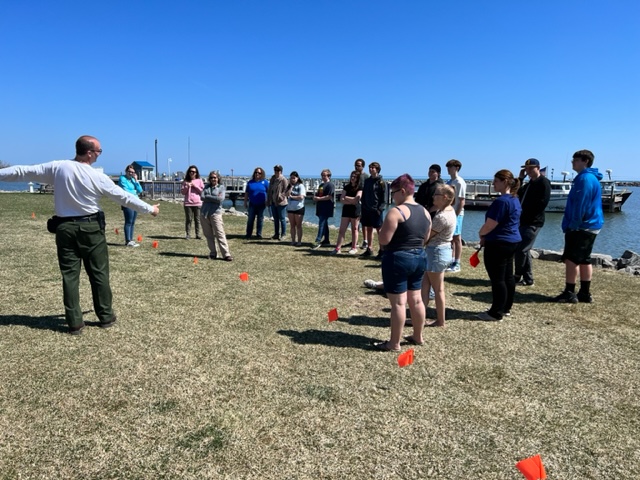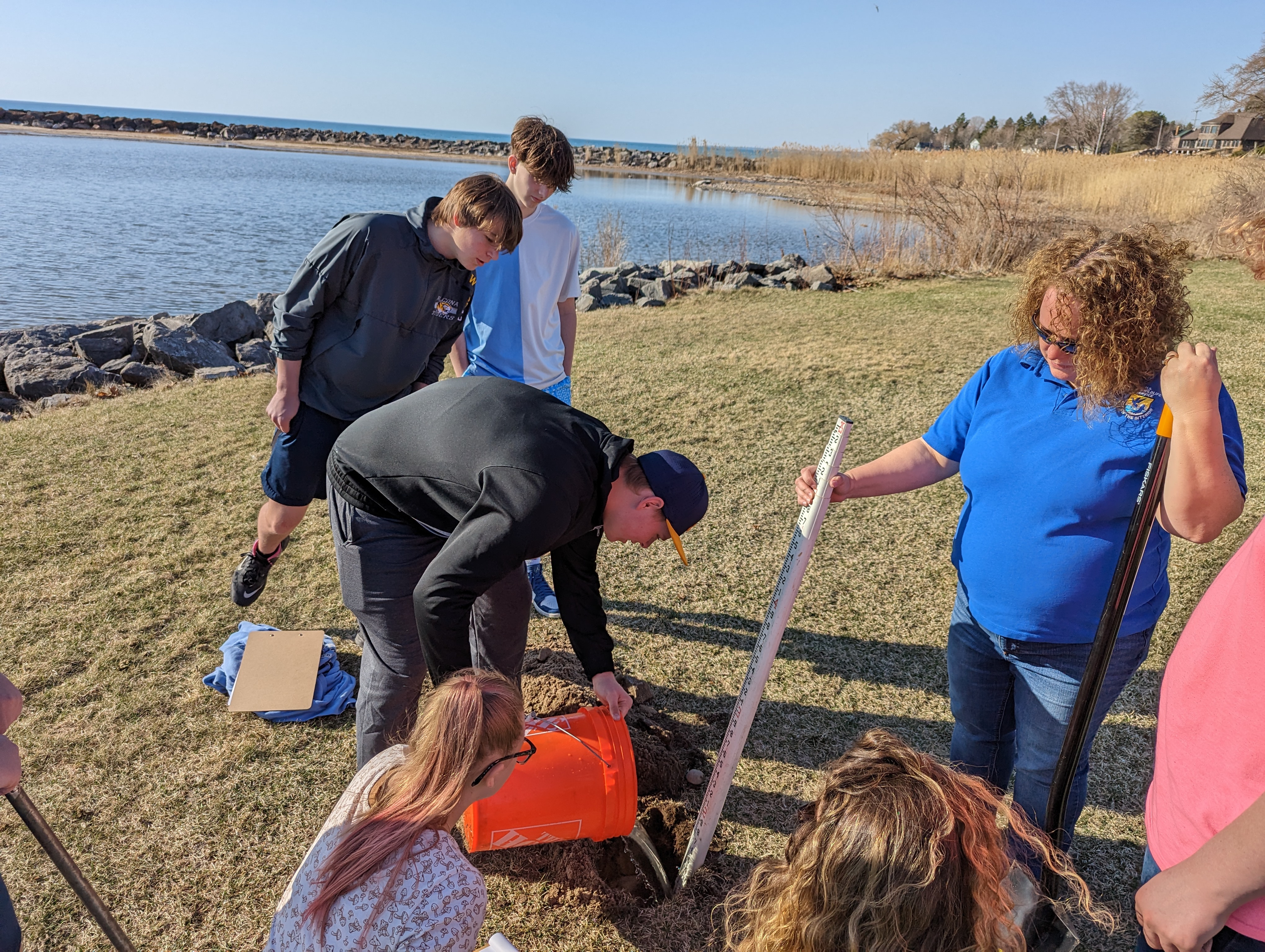Alcona students seek to protect Lake Huron with support from the Lake Huron Forever Partners Program
Project RAW (Restoring Alcona’s Watersheds) is a student-led initiative that aids in the restoration of riparian areas close to home.
The Alcona High School environmental science classes successfully wrote a grant through the Lake Huron Forever Partnership Program to implement a rain garden as part of their Project RAW (Restoring Alcona’s Watersheds) proposal for the Harrisville Harbor.
Alcona’s environmental science teacher, Ms. Kathrin Luce, described Project RAW as follows:
Project RAW is a student-led initiative that aids in the restoration of riparian areas close to home. Students enrolled in the environmental science class participate in a two-part pollution study. This entails researching local marine environments, the effects of marine debris, natural pollutants (invasive species), and how these are detrimental to our local waters. Student scholars brainstorm solutions, research the viability of mitigating environmental concerns and seek to implement positive change within our community.
In the fall of 2022, students in the environmental science classes visited the Harrisville Harbor to kick off Project RAW. With support from Michigan State University (MSU) Extension, the Northeast Michigan Great Lakes Stewardship Initiative (NEMIGLSI), U.S. Fish and Wildlife Service, Michigan Sea Grant, the City of Harrisville, and the Alcona Conservation District, students identified natural resource issues, from invasive species to storm water runoff, that had the potential to harm the Lake Huron ecosystem and watershed. While exploring the harbor property, students also discussed potential solutions.

Back in their classroom, students split into groups to research and write a comprehensive summary identifying specific problems, evidence of the problem, the research, and their recommended solution. They submitted their recommendations to the mayor of Harrisville, the Harrisville harbormaster and to the Harrisville city maintenance team, but they needed funding to implement their plans.
In November, NEMIGLSI recommended that Ms. Luce and her students apply for a Lake Huron Forever Partners Program Grant to install a rain garden and plants to reduce stormwater runoff from the parking lots. With support from NEMIGLSI and MSU Extension, the Alcona environmental science classes submitted and received their first grant to protect and restore Alcona’s watersheds.

In their 2022-2023 Harrisville Harbor Project RAW summary, students identified the following problem and solution. “The problem that we observed is that the water in the parking lots drains straight into the stream/river, polluting the aquatic environment at the Harrisville Harbor. The solution we developed is the use of a rain garden with the extra native plant life around the parking lot.” Students also explained, “the essential question is how can we conquer the runoff issues and prevent pollution of our Great Lakes in local communities. The petroleum products that are flowing into the lake can cause damage to aquatic life. With the current system, there is no way to stop the flow of these dangerous pollutants. Planting different plants at the bottom of the hill could help absorb these chemicals via a natural filtration system before entering our local waters. “
In April, students mapped out the rain garden, which was excavated and will be planted with native Michigan plants, bushes and grasses. This rain garden will reduce storm water runoff pollution and is intended to increase biodiversity in the area, particularly pollinators.




 Print
Print Email
Email